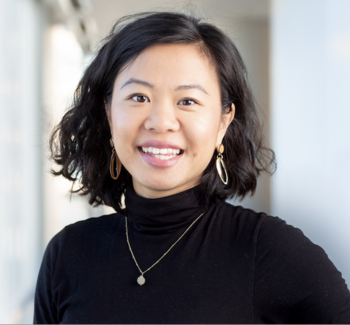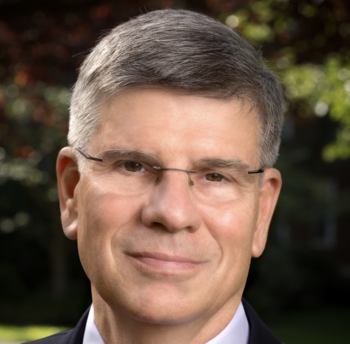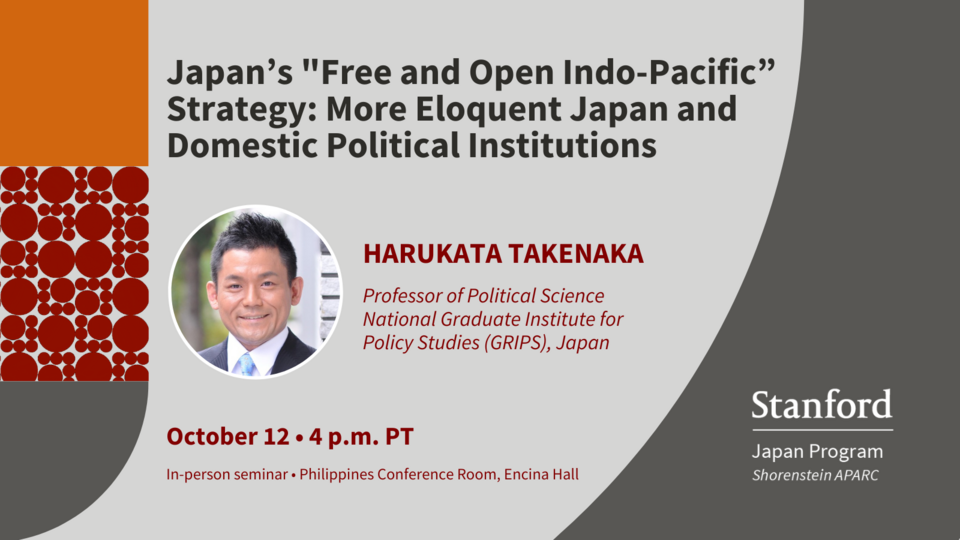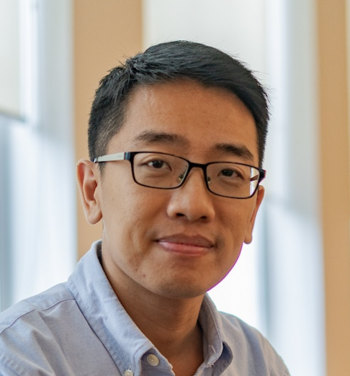Some observers have noted that this team bears a resemblance to the neoconservatives of the Bush administration. The Yoon administration is expected to stress the U.S.-Korea alliance and adopt a hardline stance against Pyongyang. Some expect Yoon to pursue a policy of “anything but Moon,” just as Bush proceeded with “anything but Clinton.”
In assembling his economic team, Yoon has drawn from well-established career civil servants. His prime minister, Han Duck-Soo, entered the civil service in 1970 and later served as minister of finance and prime minister under President Roh Moo-Hyun. Choo Kyung-Ho, who serves as deputy prime minister and the minister of economy and finance, has nearly three decades of experience in economic and financial policy. The Yoon administration has rolled out a package of market-friendly economic policies focused on eliminating red tape, stimulating innovation, and lowering corporate taxes.
There is more than a passing similarity between the composition and policy objectives of the Yoon and George W. Bush administrations. That said, the political trajectory of Yoon’s presidency seems likely to follow that of Biden, not Bush. Unlike Biden, whose approval ratings have steadily declined after entering office, Bush’s ratings soared to 90% following 9/11 and stayed relatively high during the early days of the War on Terror. Bush was re-elected in 2004, but it remains to be seen whether Biden can do the same.
Yoon faces many of the same challenges as Biden: the COVID-19 pandemic, the war in Ukraine, high inflation, and a society riven by ever-worsening political and economic polarization. Both leaders also have to contend with a ruling party that is far from cohesive. Examining the path that the Biden administration has taken over the past 18 months can thus yield important lessons for the political future of the Yoon administration.
An Early Loss of Support
During Trump’s presidency in the United States and Moon Jae-In’s presidency in Korea, commentators often spoke about a crisis of democracy. The conversation has now shifted to focusing on a crisis of political leadership. Those in the United States and in Korea have sought to understand why Biden and Yoon, who each entered office after a hard-won electoral victory, faced difficulties early on in their terms.
As I noted in a previous essay, both presidents won narrow victories in bruising election campaigns marked by unprecedented levels of mudslinging.[5] In both countries, the ruling parties won important victories shortly after the presidential election. Raphael Warnock won a Senate seat in Georgia for the Democratic Party in January 2021, while the PPP swept Korea’s local elections in June 2022. However, those in the United States and Korea who hoped that the new president would overcome the crisis of democracy and return the country to normalcy have so far been disappointed.
Let us first look at the United States. According to a RealClearPolitics average of multiple polls conducted in July and August, nearly 70% of respondents believe that the country is going in the wrong direction. Only 23.2% stated that the country is headed in the right direction.[6] In its own analysis, FiveThirtyEight notes that Biden had the lowest approval rating (38.6%) of any president 18 months after entering office. (By comparison, Trump recorded 42.1% at the same point in his term.) Biden’s ratings have fallen even among African Americans and Latino Americans, who traditionally make up the Democratic Party’s base. Among youth, who overwhelmingly voted for Biden in 2020 (over 60%), the level of support has fallen by half.[7]
A similar trend is now evident in Korea. In terms of the speed and magnitude of the decline, Yoon has fared much worse than Biden. According to a poll of 1,000 respondents conducted by Gallup Korea from July 26 to 28, only 28% expressed support for Yoon’s job performance. In terms of age groups, those in their 30s and 40s showed the lowest level of support at 17%. Even among respondents in the city of Daegu and North Gyeongsang Province, which are conservative strongholds, negative responses exceeded positive responses by 7 percentage points.[8] If there was a difference between Biden and Yoon in this regard, it was in the main reason for the loss in support. Economic troubles created difficulties for Biden, whereas Yoon went against prevailing public opinion by appointing controversial individuals to key posts.
How might we understand the causes of Biden’s political troubles? In the July 20 New Statesman, Adam Tooze writes that “a combination of bad luck, ineptitude, internal divisions, the structures of U.S. politics and the ruthlessness of their enemies has put not only the future of the Biden administration but the republic itself in danger.”[9] One could reasonably classify the pandemic and high inflation as “bad luck.” Beyond this, Tooze largely points to two causes. Political polarization and “the ruthlessness of. . . enemies” are structural factors. On the other hand, “ineptitude” and “internal divisions” pertain to questions of political leadership. It is debatable whether Biden has already “failed,” as Tooze concludes. However, his frame of analysis provides a useful lens for diagnosing the current political situation in Korea.
Extreme Political Polarization
Structural factors have played an important role in the United States. Trump was skilled in using “divide and conquer” to his political advantage. Political polarization in the United States reached unprecedented levels during Trump’s term in office. The 2020 election came down to the wire, with Arizona, Wisconsin, and Pennsylvania playing a decisive role in the electoral college vote. Trump, along with certain segments of the Republican Party, still refuses to concede defeat.
In such a polarized environment, it is difficult for even the most skilled politician to obtain an approval rating exceeding 50%. Major initiatives that require a broad national consensus, such as FDR’s New Deal and Lyndon Johnson’s Great Society, have become virtually impossible. Biden initially pitched “Build Back Better” as a New Deal for the 21st century, but it encountered significant opposition in Congress. Conflicts over the so-called culture war issues, including abortion rights, have further intensified. Edward Luce, the U.S. national editor of the Financial Times, recently warned that “America is two nations barely on speaking terms.”[10]
Second, critics have raised doubts about the effectiveness of Biden’s political leadership at home. While Biden successfully led the Democratic Party to victory in its battle against Trump in 2020, voters did not necessarily see him as the most attractive candidate at the outset. Even though they did not secure the nomination, candidates such as Sanders and Warren, who openly advocated for progressive policies, drew a great deal of support during the primaries. Once Trump had been defeated, the intra-party alliance loosened. It became a daunting challenge to bring together different factions of the Democratic Party into a cohesive whole. I also raised this point in an interview with the Korean press, noting that Biden could face a lame duck period much sooner than expected. In perhaps the most well-known example, the Build Back Better initiative failed to pass Congress not only because of opposition from Republicans, but also because of pushback from Democratic senators Manchin and Sinema.
Although the recently passed Inflation Reduction Act takes meaningful steps related to climate change, many progressive Democrats were deeply unhappy with Biden for failing to keep his promise to act on the issue. Biden’s loss of support among young voters is partly due to economic difficulties, but it is also related to his reluctance to wholeheartedly adopt key elements of the progressive agenda. On the other side, centrist and conservative-leaning figures in the Democratic establishment, including Larry Summers, are criticizing Biden’s economic policies as being too far to the left. Moreover, Biden met with Mohammed bin Salman in July, despite his strong condemnation of the Saudi prince’s human rights record. This meeting was ostensibly for the purpose of persuading Saudi Arabia to increase its oil production. Biden received criticism from both sides of the aisle after failing to achieve this goal.
The United States is experiencing its worst inflation since the 1980s, with persistent concerns about an impending recession. Furthermore, the chaotic withdrawal from Afghanistan and the ongoing war in Ukraine have raised doubts about the effectiveness of U.S. leadership on the world stage. Biden’s response to Speaker Nancy Pelosi’s visit to Taiwan also raised doubts in some quarters. All of these events have led to growing dismay and disappointment among the American public. It is certainly too early to pronounce Biden as a failed president, as Tooze claims in the New Statesman. If anything, the Dobbs decision and the passage of the Inflation Reduction Act appear to have created momentum among core supporters of the Democratic Party ahead of this year’s midterms.
However, the Democratic Party still faces an uphill battle in its bid to retain the White House. The outcome of several ongoing criminal investigations involving the former president remains an open question, but Trump is all but certain to run again in 2024. If Biden fails, then Trump may well return—with profound consequences for America and the international community.
Tooze’s analysis of Biden’s first 18 months has significant implications for Korea. Both the United States and Korea are exposed to external shocks, including the pandemic and high inflation. The two countries also share structural problems, including political polarization and the lack of toleration and compromise among political actors.[11] Far from steering Korea’s democracy out of troubled waters, Yoon is in danger of losing political momentum altogether due to intra-party strife and incompetence.
Is There a Way Out for Yoon?
Just as Biden has to contend with Trump’s legacy, Yoon also has to deal with everything that Moon Jae-In has left behind. Missteps and complications in economic and foreign policy have surely created a challenge for Yoon, but one cannot keep blaming the Moon administration for ongoing difficulties. The people rendered their judgment when they voted the DPK out of power. Yoon will be judged on his own merits.




























